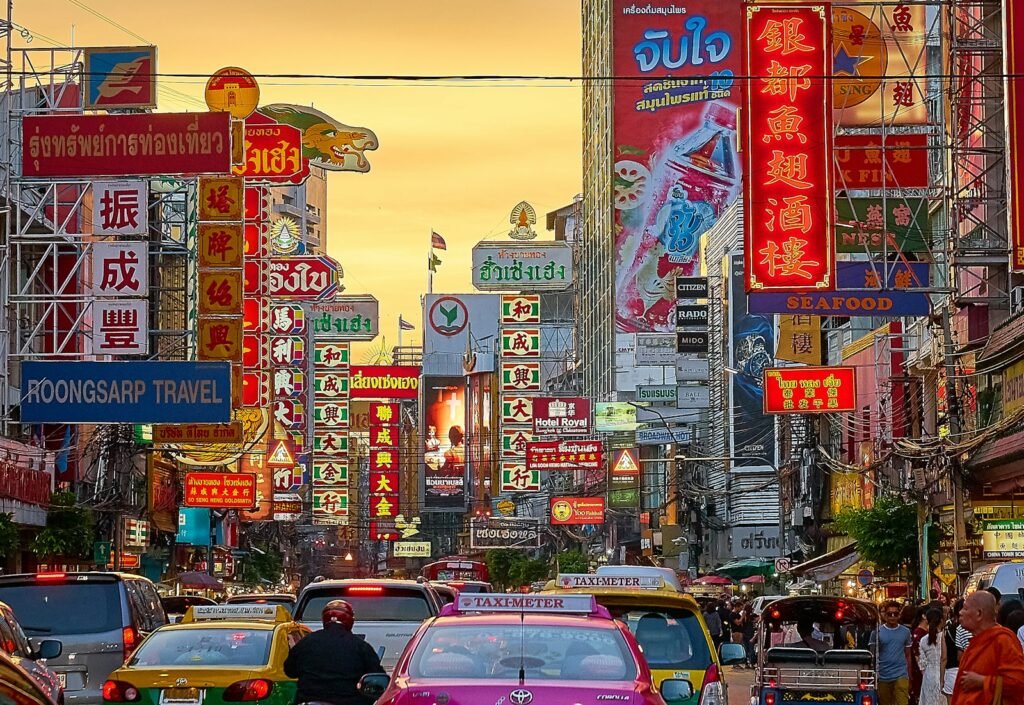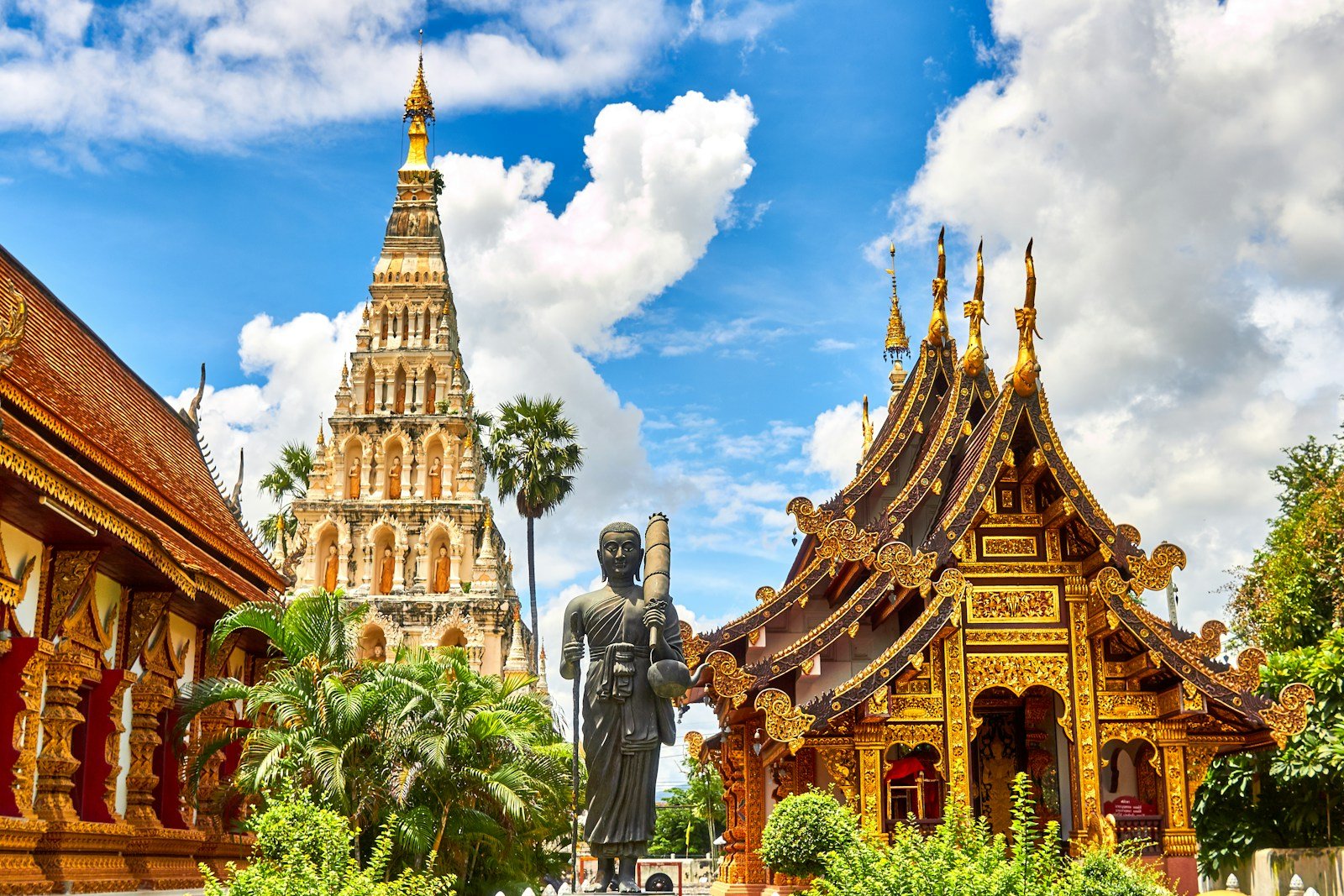Everything You Need to Know About the Thailand Digital Nomad Visa
Dreaming of working from Thailand’s stunning beaches or vibrant cities while sipping on fresh coconut water? Well, you might just be in luck! The Thailand digital nomad visa is a game-changer for remote workers who want to call this beautiful country home—at least for a while. Whether you’re a freelancer, entrepreneur, or remote employee, Thailand’s new visa opens up endless opportunities. So, let’s break it down. What is this visa all about, who can apply, and how do you make it happen?
What Is the Thailand Digital Nomad Visa?
The Thailand Digital Nomad Visa is a unique opportunity for remote workers, freelancers, and entrepreneurs to live and work in Thailand legally while enjoying the flexibility of location-independent work. It’s designed for those who want to immerse themselves in the country’s vibrant culture, breathtaking landscapes, and dynamic expat community, all while continuing their professional careers remotely.
This visa allows digital nomads to stay in Thailand for an extended period, typically up to one year, with the possibility of renewal, without the need for a traditional work permit. It’s a win-win situation for anyone looking to live in a place that offers both a high quality of life and a low cost of living.
Why Thailand?
Thailand has long been a hotspot for travelers and entrepreneurs alike, and it’s easy to see why. From the bustling streets of Bangkok to the serene beaches of Phuket, Thailand offers a diverse range of experiences for everyone. For digital nomads, the country is especially appealing due to its affordable living, excellent infrastructure, and vibrant expat scene. Whether you’re in search of modern coworking spaces, reliable internet, or a strong sense of community, Thailand has it all.
The country’s growing popularity as a digital nomad hub is largely due to its ability to cater to people from all walks of life. Thailand’s appeal isn’t just about the affordable cost of living or the beautiful landscapes; it’s also about the way the country has embraced the digital nomad lifestyle. With more people looking for flexible work options, Thailand has become a top destination for remote workers seeking a place to balance work and play.
A Growing Digital Nomad Scene
Over the past few years, Thailand has seen a surge in digital nomads and remote workers, all of whom are drawn to the country’s lifestyle and opportunities. Cities like Chiang Mai, Bangkok, and Chiang Rai have become known for their thriving coworking spaces, affordable accommodations, and the chance to connect with like-minded people from all over the world. It’s no surprise that these cities are now home to some of the largest digital nomad communities in the world.
The country is increasingly investing in infrastructure, including fast internet and modern coworking spaces, which has made it even more attractive to those in the remote workforce. Thailand’s government has also been supportive of the growing digital nomad scene, with the introduction of the digital nomad visa being one of the latest steps in making the country even more accessible to global talent.
If you’re a remote worker, entrepreneur, or freelancer looking to experience life in one of the most exciting places for digital nomads, Thailand is definitely worth considering. With a perfect mix of work, play, and culture, it’s clear why so many people are flocking to this vibrant, ever-growing digital nomad community.
Who Can Apply for the Thailand Digital Nomad Visa?
If you’ve been considering Thailand as your next destination for working remotely, you might be wondering if you qualify for the Digital Nomad Visa. The good news is that this visa is designed for a wide range of remote workers, freelancers, and entrepreneurs. That said, there are a few key eligibility requirements you’ll need to meet to apply. Let’s dive into who can apply and the main differences between this visa and the standard tourist visa.

Eligibility Requirements for the Digital Nomad Visa
To apply for the Thailand Digital Nomad Visa, you need to meet some basic criteria. The good news is that they’re quite straightforward:
- Age: There isn’t a specific age limit, but applicants should be of legal working age, which is generally 18 or older.
- Work Type: The Digital Nomad Visa is intended for people working remotely, so you must be employed in a role that can be done online. This includes freelancers, remote employees, business owners, and entrepreneurs who do not rely on a physical presence in Thailand to operate.
- Income Threshold: You’ll need to show proof of your income to demonstrate that you can support yourself during your stay in Thailand. The exact income requirement can vary, but it’s generally around $1,000-$1,500 per month. For freelancers and business owners, providing financial statements or contracts can help you meet this requirement. Having stable income is essential to show that you won’t be financially dependent on Thailand during your stay.
For some, meeting these requirements might seem daunting, but many digital nomads can easily prove their eligibility if they have consistent income from remote work or their business ventures. This visa is all about making sure that those who come to Thailand to work remotely are self-sufficient and can contribute to the local economy in a positive way.
Tourist Visa vs. Digital Nomad Visa
One important distinction to note is the difference between the Thailand Digital Nomad Visa and the regular tourist visa. While both visas allow you to stay in the country, there are key differences:
- Tourist Visa: This visa is designed for short stays and typically lasts up to 60 days, with the option to extend once. It doesn’t allow you to work while you’re in the country. So if you’re on a tourist visa and you’re working remotely for a foreign company, you could be violating the terms of your visa.
- Digital Nomad Visa: On the other hand, the digital nomad visa is specifically designed for those who will be working remotely while in Thailand. It allows you to stay for a longer period, typically up to 12 months, with the option for renewal. As long as you’re meeting the visa’s income requirements and working remotely, you’re fully compliant with the law. This visa gives you the freedom to live in Thailand while continuing your work without the risk of overstaying or violating visa terms.
In short, the digital nomad visa is a much better option if you plan to stay in Thailand for an extended period and want to ensure your work stays completely legal. It provides more flexibility than a tourist visa, which is intended for short-term visits.
Who Should Apply? Freelancers, Remote Workers, and Entrepreneurs
The Thailand Digital Nomad Visa isn’t just for one type of remote worker. It’s ideal for a broad range of people who work online or run businesses that don’t require a physical office in Thailand. Here’s a closer look at who might be a good fit for this visa:
- Freelancers: If you work as a freelancer in fields like writing, graphic design, web development, or marketing, the Digital Nomad Visa is perfect for you. Freelancers with a steady stream of clients and income can easily meet the visa’s requirements and enjoy the benefits of living in Thailand while continuing to work remotely.
- Remote Workers: If you’re employed by a company but work remotely, you could also qualify for the Digital Nomad Visa. Whether you’re an employee at a large tech company or a smaller startup, as long as your job can be done from anywhere, you can take advantage of the visa to live in Thailand without needing to relocate your job or business.
- Entrepreneurs: Entrepreneurs who run their businesses online or have location-independent businesses can also apply. Whether you’re managing e-commerce, consulting, or running a tech startup, the Digital Nomad Visa allows you to stay in Thailand and keep growing your business while enjoying everything the country has to offer.
Ultimately, if you work remotely, the Thailand Digital Nomad Visa is a fantastic way to explore the country, connect with a growing community of like-minded people, and enjoy all the perks that come with working from one of the most beautiful destinations in the world. If you fall into one of the above categories, you’re likely a great candidate for this visa and can make the most out of your time in Thailand.

How to Apply for the Thailand Digital Nomad Visa
Now that you’ve decided to take the plunge and apply for the Thailand Digital Nomad Visa, let’s walk through the entire application process. It might sound a bit intimidating at first, but I’ll break it down into easy-to-follow steps so you’ll know exactly what to expect. Whether you’re applying from your home country or while already in Thailand, the process is designed to be relatively straightforward, as long as you’ve got everything in order.
Step-by-Step Guide to the Application Process
- Check Your Eligibility
Before diving into the paperwork, make sure you meet the basic eligibility criteria for the Thailand Digital Nomad Visa. You’ll need to be working remotely, earning an income that meets the minimum requirements, and have proof of your employment or freelance work. Double-check these details, as they will form the foundation of your application. - Gather the Necessary Documents
This step can seem like the most daunting part, but as long as you have the right paperwork, it’s pretty simple. You’ll need to provide proof of income, a valid passport, and details of your remote work situation (whether you’re an employee, freelancer, or entrepreneur). More on that in the next section. - Submit Your Application
You’ll need to submit your application through the Thai Immigration Bureau’s website or in person at a Thai embassy or consulate, depending on where you’re applying from. The online process is usually more convenient, but if you’re already in Thailand and applying from within the country, you’ll likely need to submit your documents in person. - Wait for Approval
Once your application is submitted, the waiting game begins. It can take a few weeks for your application to be processed. During this time, the authorities may review your application and documents to ensure everything checks out. Be patient during this period! - Receive Your Visa
If everything goes smoothly and your application is approved, you’ll receive your visa. The duration of the visa can vary, but it usually lasts for up to one year, with the option to renew. You’ll also be informed about any additional steps or checks required to finalize your visa status.
Documents Needed for a Successful Application
When applying for the Thailand Digital Nomad Visa, you’ll need to gather several documents to support your application. These documents help prove your eligibility and ensure that your stay in Thailand is legal and legitimate. Here’s a breakdown of what you’ll need:
- Valid Passport
This is a given, but make sure your passport is up-to-date and has at least six months of validity left before applying. If your passport is close to expiring, renew it beforehand. - Proof of Remote Employment or Freelance Work
Whether you’re employed by a company or working as a freelancer, you’ll need to prove that your job is remote. This could be in the form of a contract, a letter from your employer confirming your remote status, or invoices showing income from your freelance clients. - Proof of Income
To meet the visa’s income requirement, you’ll need to provide evidence that you earn enough to support yourself during your time in Thailand. Typically, you’ll need to show monthly income statements or bank statements that reflect your earnings. This is the most important document, so make sure your proof is clear and up-to-date. - Health Insurance
Depending on the specific requirements at the time of your application, you may also need to provide proof of health insurance coverage that meets the standards set by the Thai government. Be sure to check the latest rules on this. - Completed Application Forms
You’ll need to fill out a few forms as part of the application process. These forms will request basic personal information, details about your remote work, and your travel plans. Make sure to double-check all information for accuracy. - Passport-Size Photos
As with most visa applications, you’ll need to include a couple of passport-size photos. Make sure they’re recent and meet the photo guidelines. - Additional Documents (if applicable)
Depending on your specific situation, you may need to provide additional documents. For example, if you’re an entrepreneur, you may need to include a business registration certificate or financial statements for your company. If you’re applying from within Thailand, you may also need to show proof of legal stay, like an existing visa or immigration stamp.
Visa Application Timeline and Approval Process
The application timeline for the Thailand Digital Nomad Visa can vary depending on several factors, such as whether you’re applying from outside the country or within Thailand. In general, here’s what you can expect:
- Processing Time
The typical processing time for the digital nomad visa is between 5-15 business days, though it can take longer if there’s a backlog of applications or if additional documents are required. Be sure to apply well in advance, especially if you’re planning to travel during peak seasons. - Approval or Denial
After processing, you’ll receive a decision on your visa application. If your application is approved, you’ll receive a visa approval letter that allows you to stay in Thailand for the duration of the visa. If your application is denied, you may be asked to submit additional documentation or rectify any discrepancies in your application before reapplying. - Visa Issuance
Once your visa is approved, you’ll either be issued a physical visa (if you’re applying at a consulate or embassy) or a digital visa (if applying online). Keep in mind that if you’re applying from within Thailand, you may need to leave the country briefly to complete the visa issuance process and return once your visa is issued. - Renewal Process
The Thailand Digital Nomad Visa usually lasts for a year, but you can apply for a renewal if you’re planning to stay longer. For renewal, you’ll need to provide proof that you continue to meet the eligibility requirements, including ongoing remote employment and income levels. Typically, you can renew your visa in-country, but it’s always best to double-check with the Thai Immigration Bureau for the latest process.
Throughout the entire process, make sure you’re staying organized and proactive in following up with the authorities if needed. The more prepared you are, the smoother the application process will go

Benefits of the Thailand Digital Nomad Visa
The Thailand Digital Nomad Visa offers a wealth of benefits that can make it an ideal option for remote workers, freelancers, and entrepreneurs looking to work and live in one of the world’s most exciting destinations. Thailand’s growing digital nomad scene, beautiful landscapes, and vibrant local culture make it an attractive choice for anyone looking to combine work and adventure. In this section, we’ll explore some of the key benefits that come with the Thailand Digital Nomad Visa and how it can enhance your experience living and working in Thailand.
Freedom to Live and Work in Thailand for Up to a Year
One of the main draws of the Thailand Digital Nomad Visa is the flexibility it offers. With this visa, you’re granted the ability to stay and work in Thailand for up to one year, which is a huge advantage compared to the traditional tourist visa. Unlike a typical tourist visa, which usually restricts you from engaging in paid work, the digital nomad visa allows you to legally work for your foreign employer or freelance clients while enjoying everything Thailand has to offer.
This extended stay also means that you won’t have to worry about frequent visa runs, which can be both time-consuming and expensive. You can focus more on your work and less on constantly renewing your visa. Plus, the ability to stay for a full year gives you the chance to truly immerse yourself in Thai culture and lifestyle, whether you’re working from the bustling streets of Bangkok or a tranquil beachside town like Chiang Mai or Koh Phangan.
For many digital nomads, this type of stability is a game-changer. It allows you to plan your life in Thailand with confidence, without constantly worrying about your visa expiring and what steps to take next.
Health Insurance Requirements for Visa Holders
When applying for the Thailand Digital Nomad Visa, one of the key requirements is proof of health insurance. While this might seem like an extra hassle, it’s actually a great benefit for both you and the country. Health insurance ensures that you have access to quality healthcare while you’re living in Thailand, which is especially important if you get sick or need medical attention.
Thailand has a world-class healthcare system, and many expats and digital nomads find that the medical care is both high-quality and affordable. Having health insurance coverage means you can tap into this system without worrying about the financial burden. Plus, being insured can offer you peace of mind knowing that you’re covered in case of emergencies, something that’s often overlooked by those traveling without adequate health coverage.
When applying for the visa, you’ll need to prove that your health insurance meets the standards set by the Thai government. This typically includes coverage for both emergency and non-emergency medical situations, as well as coverage for repatriation in case you need to be flown back to your home country for medical reasons. You can usually get insurance from Thai providers, or you can opt for international plans that cater to expats and digital nomads. Either way, make sure to check the specific requirements, as they can change over time.
Opportunity to Connect with Other Nomads and Local Communities
Thailand’s digital nomad scene has exploded in recent years, and the Thailand Digital Nomad Visa gives you the perfect opportunity to tap into this vibrant network of like-minded individuals. Whether you’re in one of Thailand’s major cities like Bangkok or Chiang Mai, or in a smaller town that’s known for its nomadic community, there’s no shortage of opportunities to connect with others.
Many digital nomads find that Thailand’s relatively low cost of living, great weather, and thriving coworking spaces make it an ideal destination to meet other remote workers and entrepreneurs. Whether you’re joining networking events, coworking in one of the many popular hubs, or attending digital nomad meetups, you’ll quickly find yourself surrounded by people who share your interests and lifestyle. These connections can not only help you build a sense of community but can also lead to business opportunities, collaborations, and friendships that last well beyond your time in Thailand.
In addition to meeting other digital nomads, Thailand offers the chance to connect with locals and learn more about the rich culture and history of the country. From learning the Thai language to exploring the local food scene and joining community events, living in Thailand offers endless possibilities to immerse yourself in new experiences.
Thailand is well-known for its welcoming and friendly locals, and the opportunity to make meaningful connections with the Thai community can be one of the most rewarding aspects of living in the country. Whether you’re exploring local markets or attending cultural festivals, you’ll find that Thai people are generally open and warm to foreigners.
This dual connection – both with fellow nomads and with the local Thai community – helps create a more balanced and enriching experience. It’s one thing to work remotely in a new place, but being able to create lasting relationships and really integrate into the local culture is what truly makes the Thailand Digital Nomad Visa stand out.

Things to Consider Before Applying for the Thailand Digital Nomad Visa
While the idea of living and working in Thailand might sound like a dream come true, there are a few important factors to consider before applying for the Thailand Digital Nomad Visa. Moving to a new country – especially for an extended period – comes with its own set of challenges. Taking the time to think about these practical aspects can help you make the most of your time in Thailand and avoid unexpected surprises along the way.
Cost of Living in Thailand and the Impact on Remote Work
One of the biggest draws for digital nomads moving to Thailand is the relatively low cost of living. Compared to many Western countries, Thailand offers affordable prices on everything from rent and food to transportation and leisure activities. However, it’s still important to plan your budget carefully, as costs can vary significantly depending on where you choose to live.
Popular digital nomad hubs like Bangkok and Chiang Mai tend to have higher living expenses than smaller towns or beach destinations. In Bangkok, for example, you can expect to pay more for rent, dining out, and coworking spaces. On the other hand, cities like Chiang Mai offer a more budget-friendly lifestyle without sacrificing amenities or community. If you’re planning to work remotely full-time, having a solid understanding of your monthly expenses will help you maintain a comfortable lifestyle without burning through your savings.
It’s also worth considering how the cost of living will impact your productivity and work routine. While Thailand’s laid-back vibe is great for unwinding, it can also be tempting to treat your time there like a vacation. Striking the right balance between work and play is key to making the most of your digital nomad experience.
Housing Options and Choosing the Right Area to Live In
Finding the right place to live can have a huge impact on your overall experience in Thailand. Luckily, there are plenty of housing options available, from budget-friendly apartments to luxury condos with all the amenities you could need. The key is figuring out what works best for your lifestyle and budget.
If you’re looking for a social atmosphere and a built-in community, cities like Chiang Mai and Bangkok have plenty of coworking spaces, cafes, and shared accommodations that cater specifically to digital nomads. In these cities, you’ll also find vibrant expat communities and regular events that make it easy to meet new people.
For those seeking a more laid-back lifestyle, beach destinations like Koh Phangan, Koh Lanta, or Phuket offer a slower pace of life with stunning scenery. However, keep in mind that these locations might have fewer coworking spaces and slower internet speeds compared to major cities.
Before committing to a long-term rental, it’s a good idea to spend some time exploring different neighborhoods and testing out different areas to see what fits your lifestyle. Many nomads prefer to book a short-term stay through platforms like Airbnb or Booking.com before finding a more permanent place.
Local Customs and Legal Requirements for Long-Term Stays
Living in Thailand isn’t just about enjoying the beaches and coworking spaces – it’s also about respecting the local culture and understanding the legal requirements for long-term stays. Thailand is known for its friendly and welcoming atmosphere, but there are certain customs and laws that foreigners are expected to follow.
For example, showing respect for the Thai monarchy is taken very seriously, and any form of disrespect can result in legal consequences. It’s also important to be mindful of dress codes when visiting temples or religious sites, as wearing revealing clothing can be seen as disrespectful.
In terms of legal requirements, digital nomads need to be aware of visa extensions, tax obligations, and local regulations regarding remote work. While the Thailand Digital Nomad Visa allows you to work for foreign clients or employers, it doesn’t permit you to take on work for Thai companies without additional permits. Staying informed about the latest visa rules and keeping all your documents in order will help you avoid any legal issues during your stay.
Taking the time to learn about Thai customs and legal requirements not only helps you avoid trouble but also shows respect for the country and its people – something that will go a long way in helping you feel more at home during your time in Thailand.

Conclusion
Thailand is quickly becoming a hotspot for digital nomads, and with the new visa in place, it’s easier than ever to live the tropical remote work dream. From stunning beaches to vibrant cities, Thailand offers a unique lifestyle with endless opportunities for remote workers. But before you pack your bags, it’s important to understand the visa application process and all that comes with it. Have any thoughts or experiences applying for the digital nomad visa? Let me know in the comments—I’d love to hear about your journey!







